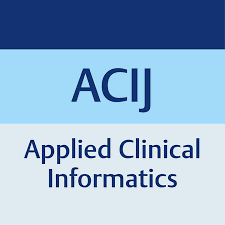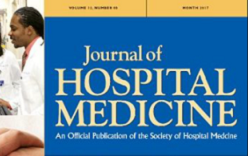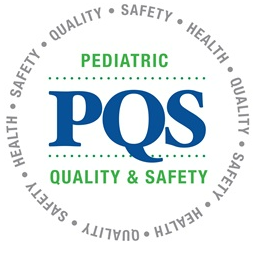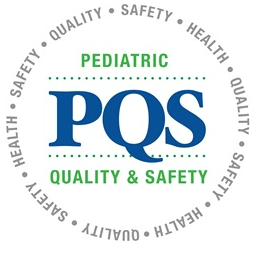Publications
-

IHQSE Faculty Member Employs QI Methodology to Address Add-on Test Failures Across Health SystemOpens in a new window
Aug 13, 2022Venipunctures are clinically necessary for hospitalized patients, but failed add-on lab tests can lead to excess venipunctures and patient harm. In a recent publication in Applied Clinical Informatics, IHQSE faculty member, Tyler Anstett, DO and team used QI methodology to identify a root cause of add-on failures and then implemented a simple and effective solution.Opens in a new window Full story -

Study Shows Patients Lack Education on Sexual Side Effects of Cancer TreatmentOpens in a new window
Aug 1, 2022IHQSE Faculty member, Dr. Sarah Tevis, and team surveyed patients with stage 0-IV breast cancer about the information they received about potential sexual side effects of their treatment. The survey revealed that patients—most of whom receive little to no information—desire personalized education early and often to better navigate these effects during treatment.Opens in a new window Full story -

Tonsillectomy Patients: Should they Stay or Should they Go?Opens in a new window
Aug 1, 2022IHQSE Certificate Training Program Graduates Dr. Norman Friedman, Renee Crowder and Sarah Derieg developed a set of screening criteria to predict children who would need overnight monitoring after surgery for sleep-disordered breathing. They report that 75% of patients did not have a prolonged oxygen requirement making them candidates for same day surgery. The probability of a prolonged oxygen requirement was only 18% if patients did not have a diagnosis of asthma or a resting pulse oxygen measurement of < 96%. They conclude that all patients who are off oxygen within 3 hours of surgery and pass a sleep room air challenge are safe for discharge to home.Opens in a new window Full story -

IHQSE Faculty Member Evaluates Measurement and Interventions to Decrease Diagnostic ErrorOpens in a new window
Jul 25, 2022Diagnostic errors are common and important causes of preventable morbidity and mortality in a variety of medical settings. Diagnostic errors leading to harm are most likely to involve diagnoses of cancer, vascular events, or infection. IHQSE Faculty, Dr. Katie Raffel, along with Sumant Ranji, MD, takes a look at approaches to measurement, etiologies, and interventions to decrease diagnostic error.Opens in a new window Full story -

Dedicated Residency Training Yields Quality, Safety and Hospital LeadersOpens in a new window
Jun 6, 2022IHQSE faculty members, Drs. Emily Gottenborg, Jeff Glasheen, and Tyler Anstett, along with IHQSE alumna Dr. Julia Limes, published the first program evaluation of a residency training program focused on Hospital Medicine. The paper describes the University of Colorado’s experience of training over a hundred hospitalist residents over 15 years. Notably, the program found that graduates were highly likely to choose careers in hospital medicine with over 80% holding quality, safety and operational leadership roles.Opens in a new window Full story -

Valuing Hospital-Providers Beyond Clinical ProductivityOpens in a new window
Jun 2, 2022Dr. Moksha Patel, IHQSE Lead Physician Informaticist, authored a perspective piece, looking at ways to reimagine the way we measure hospital-provider productivity. This paper focuses on the limitations of traditional measures of hospital-provider value, such as clinical productivity and emphasizes the patient, employee, and institutional outcomes such as quality, safety and experience.Opens in a new window Full story -

IHQSE Shows Promise as Only Training Program Associated with Organization-Level Improvements and Publicly Reported MeasuresOpens in a new window
Mar 7, 2022Despite decades of effort to drive quality improvement, many health care organizations still struggle to optimize their performance on quality metrics. The advent of publicly reported quality rankings and ratings allows for greater visibility of overall organizational performance but has not provided a roadmap for sustained improvement in these assessments. In 2012, the Institute for Health care Quality, Safety, and Efficiency was launched, which is an integrated set of quality and safety training programs, with a focus on leadership development and support of performance improvement through data analytics and intensive coaching. After 10 years, the IHQSE has trained nearly 2000 individuals and has been associated with significant improvement in organization-level quality rankings and ratings, offering a framework for organizations seeking systematic, long-term improvement.Opens in a new window Full story -

Standardized De-escalation Criteria Result in 46% Reduction in PICU-to-Floor Time-to-Transfer DecisionOpens in a new window
Feb 1, 2022Standardizing the transfer criteria and implementation of a transfer-readiness assessment reduced the time-to-transfer decision out of the PICU from 14.4 hours to 7.8 hours and increased the proportion of patients transferred on >/6Lpm of HHF oxygen in children with viral bronchiolitis. No increase in PICU readmissions or use of rapid response team was found.Opens in a new window Full story -

IHQSE Leader Reports Impact of Redesigned Systems-based Case Review ConferenceOpens in a new window
Dec 21, 2021IHQSE leader Dr. Tyler Anstett and colleagues report on how a systems-based M&M conference with key stakeholders present resulted in significant improvements in completion time of ‘routine’ (18-minute reduction) and ‘now’ (8-minute reduction) ordered inpatient electrocardiograms. This is the first study to show a positive impact on a process following a systems-based case review conference.Opens in a new window Full story -

“First Five” Quality Improvement Program Increases Adherence and Continuity with Well-child CareOpens in a new window
Dec 1, 2021Alumni of IHQSE’s Certificate Training Program publish outcomes resulting from a series of interventions aimed at improving adherence with recommended well-child checks and continuity of care with the same provider in the first year of a child’s life. Using the medical home concept as a guide, this team’s program showed increased adherence with first five visits in the first year of life from 25% to 78% with sustained improvement in subsequent years.Opens in a new window Full story